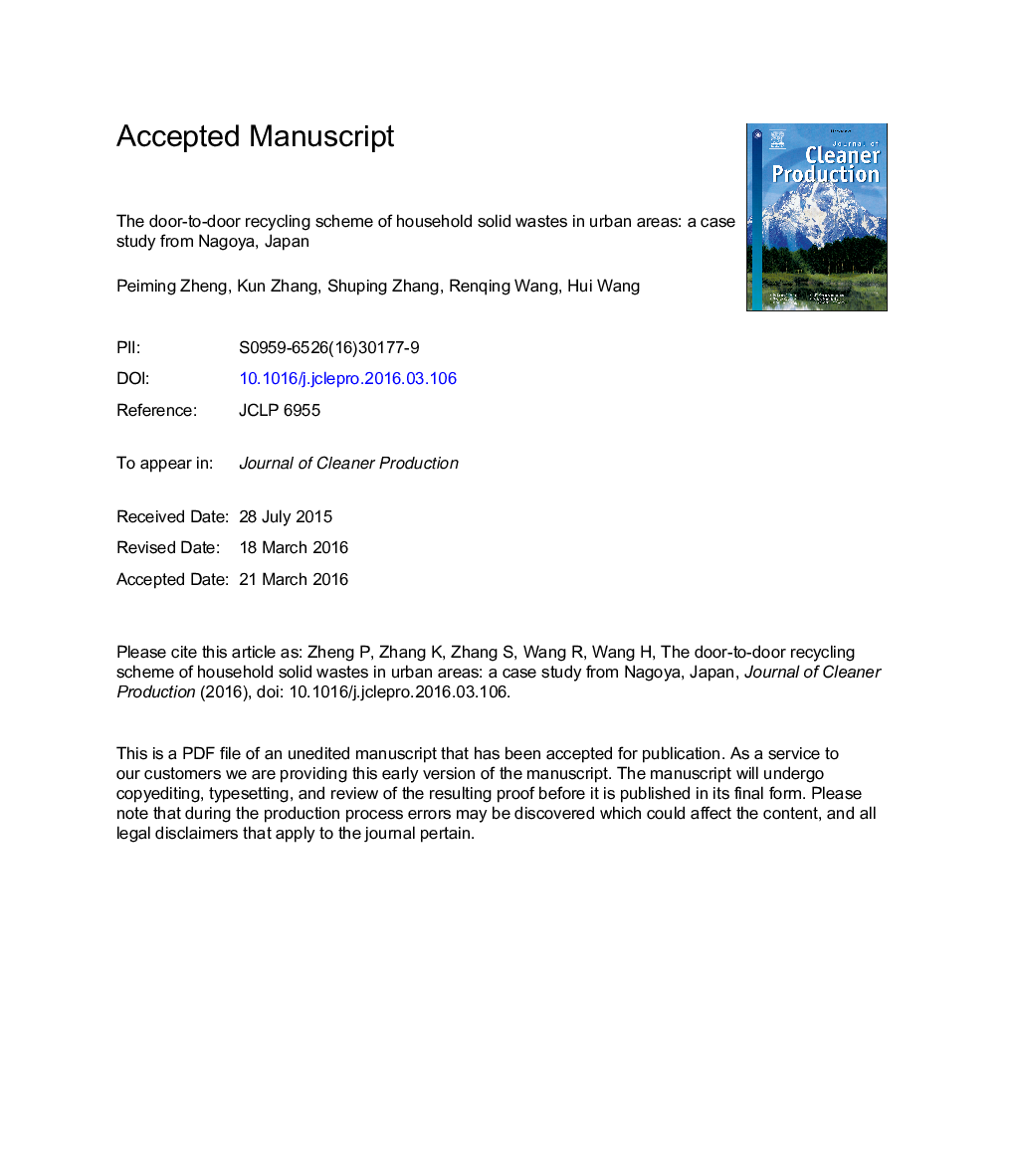| Article ID | Journal | Published Year | Pages | File Type |
|---|---|---|---|---|
| 5480554 | Journal of Cleaner Production | 2017 | 36 Pages |
Abstract
The objective of this study is to establish a better understanding of door-to-door recycling scheme of household solid wastes (HSW) in Nagoya, Japan. The details of door-to-door recycling scheme including the category of HSW, the procedure of door-to-door recycling scheme, and the treatment technology of the HSW in Nagoya were reported. Based on SWOT (strength, weakness, opportunity, and threat) analysis, the internal (strength and weakness) and external (opportunity and threat) conditions of door-to-door recycling scheme of HSW were clearly presented. The study opens a window through which major stakeholders involved can perceive the favorable (strength and opportunity) and unfavorable (weakness and threat) conditions of HSW management. Four critical strategies including further developing the recycling awareness of residents, completing the insurance mechanism for implementation of recycling system, extending the responsibility of producer/industry, and developing deep research of waste treatment were proposed to maintain and develop the door-to-door recycling scheme of HSW. They may also be useful references for other developing countries intending to enhance HSW management.
Keywords
Related Topics
Physical Sciences and Engineering
Energy
Renewable Energy, Sustainability and the Environment
Authors
Peiming Zheng, Kun Zhang, Shuping Zhang, Renqing Wang, Hui Wang,
